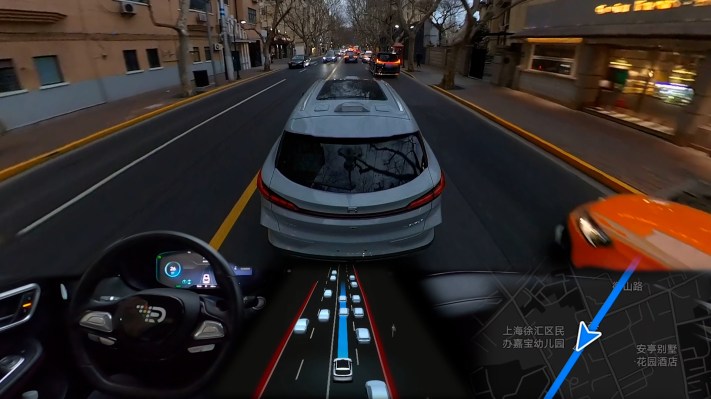Deeproute.ai, the Shenzhen-headquartered robotaxi startup with $350 million in funding and over 500 employees worldwide, is aiming to open an operations center in Germany in 2024. The move will make it yet another Chinese mobility upstart to set up a physical presence in Germany, home to some of the world’s largest automakers, as they venture abroad.
The plan was announced at the International Motor Show Germany in Munich this week where a good handful of Chinese mobility players were present. The Alibaba-backed company also has plans to roll out its production-ready autonomous driving solution in Germany next year, followed by other European markets.
Drive 3.0, what the solution is called, works without HD maps and comes with features like valet park assist at a compelling hardware price of $2,000, thanks in part to its competitively priced Chinese lidar suppliers. It uses Nvidia’s Drive Orin system-on-a-chip.
Deeproute didn’t give much detail on what the “operations center” actually does, only telling TechCrunch that it will hire a business development team there. Nor does it know which city will host the new base yet, though there are a few obvious options.
Looking at history, Deeproute’s Suzhou-based competitor Momenta had the foresight to open an office in Stuttgart two years ago. The decision no doubt paved the way for Momenta to cultivate closer relationships with its investor Mercedes-Benz, which is headquartered in the German city, and possibly other European OEMs.
Nio, a premium electric vehicle upstart from China that develops its ADAS technology in-house, has a 1,500-sqm innovation center in Berlin and a design facility in Munich. In the German capital, it also runs a “Nio House,” the EV maker’s stylish members’ club and showroom.
Like other ambitious Chinese AV startups, Deeproute set out with a focus on Level 4 driverless technologies to power robotaxis but has over time come to embrace less advanced driving solutions for auto partners, which can bring in more immediate cash flow.
Indeed, a Deeproute company representative said that “as we’ve been working with OEMs on mass production since last year, we shifted our focus from robotaxi to production-ready car road testing.” By the end of 2022, Deeproute had amassed over 800,000 passenger rides, most of which were carried out by its robotaxis in major Chinese cities.
Having a footprint in Germany will be instrumental to its new focus of expanding its OEM customer base, which so far includes Seres and Geely. A business development team on the ground means Deeproute will be able to “connect with more local automakers, support OEM partners on smart driving mass production, and etc.,” the company representative said. Let’s see if more Chinese robotaxi companies will follow suit by venturing into Germany.
